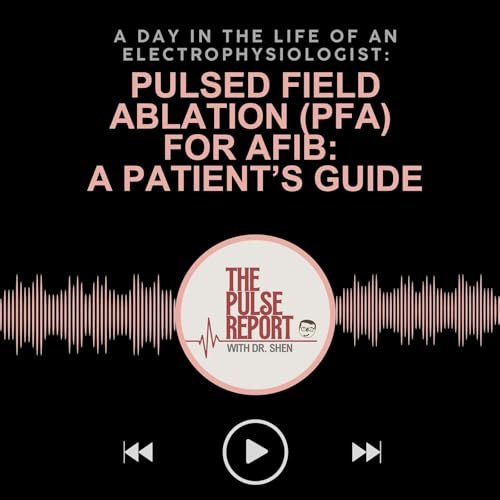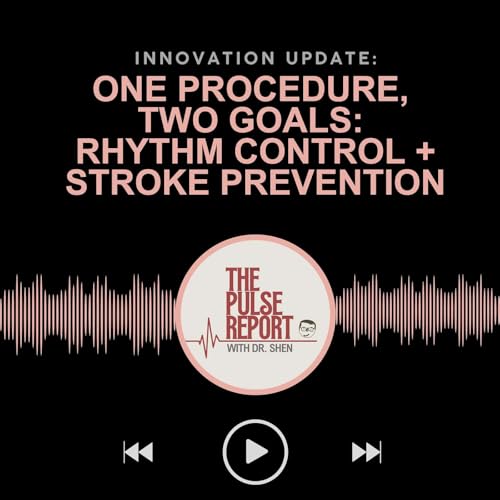Atrial fibrillation (AFib) isn’t just disruptive — it can affect daily life, raise stroke risk, and lead to long-term complications. In this episode of The Pulse Report, Dr. Shen, a cardiologist specializing in electrophysiology and the Director of Research and Education at Cardiovascular Medicine (CVM), takes you inside one of the most exciting advances in rhythm care: pulsed field ablation (PFA).
Traditional ablation has long been a cornerstone of AFib treatment, but it relies on heat or cold, which can sometimes affect nearby tissues. PFA uses short electrical pulses that precisely target only the misfiring heart cells — making it safer, faster, and more selective.
Recent studies, including the ADVENT trial (The New England Journal of Medicine, 2023) and early registries in Circulation and Journal of the American College of Cardiology, show that PFA is at least as effective as older methods, but with fewer complications.
You’ll learn:
- What pulsed field ablation (PFA) is, and how it differs from traditional approaches.
- What to expect before, during, and after the procedure.
- Why major trials like EAST-AFNET 4, EARLY-AF, and CABANA show that ablation often provides better rhythm control and quality of life than medications alone.
- Why ablation isn’t always a permanent “cure,” and what it means when AFib comes back.
- How the 2023 ACC/AHA/HRS AFib Guidelines position ablation as a strong rhythm-control option, while emphasizing individualized care.
- Real-world stories of how restoring rhythm helps people regain energy, confidence, and quality of life.
This A Day in the Life of an Electrophysiologist episode takes you behind the scenes of PFA, blending cutting-edge research with day-to-day practice. It highlights what patients, families, and doctors should know about this new option—and why shared decision-making is key to finding the right treatment path.
If you or a loved one is living with AFib, this episode offers clarity and evidence-based guidance to help you explore whether pulsed field ablation might be right for you.
Follow us on YouTube: https://www.youtube.com/@ThePulseReportWithDrShen
Read more:
-Reddy VY, et al. (2023). Pulsed Field or Conventional Thermal Ablation for Paroxysmal Atrial Fibrillation | New England Journal of Medicine
-Kirchhof P, et al. (2020). Early Rhythm-Control Therapy in Patients with Atrial Fibrillation. | New England Journal of Medicine
-Andrade JG, et al. (2020). Cryoablation or Drug Therapy for Initial Treatment of Atrial Fibrillation. | New England Journal of Medicine
-Packer DL, Mark DB, Robb RA, et al. Effect of Catheter Ablation vs Antiarrhythmic Drug Therapy on Mortality, Stroke, Bleeding, and Cardiac Arrest Among Patients With Atrial Fibrillation: The CABANA Randomized Clinical Trial.
-2023 ACC/AHA/HRS Guideline for the Management of AFib. | Circulation.
Let's keep your heart — and your life — going strong and in rhythm.
 9 min
9 min 6 min
6 min 6 min
6 min 10 min
10 min
